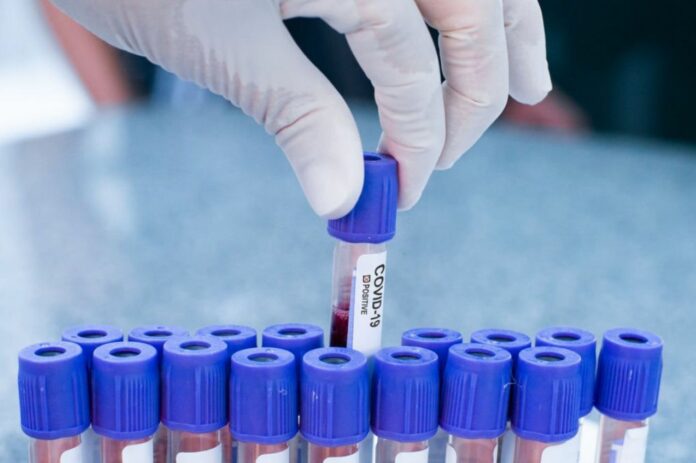“This is the first time that we’ve seen such a common genetic variant associated with COVID mortality.”
It may be the most puzzling thing about COVID: what starts out as mild flu-like symptoms in some people turns into severe disease, disability, or even death in others. A new paper in Nature may explain how this difference is caused by genetics.
When infected with COVID, the researchers showed that mice with gene changes that had been linked to Alzheimer’s disease were more likely to die.
In addition, a retrospective analysis reveals that patients with the same gene variations were more likely to have died from COVID during the outbreak. These gene variations are present in 3% of the world’s population, therefore the discoveries may affect hundreds of millions of people worldwide.
“It is clear that age, sex, and certain preconditions such as diabetes increase the risk of detrimental outcomes,” says professor Sohail Tavazoie, “but these factors don’t fully explain the spectrum of COVID outcomes.
“This is the first time that we’ve seen such a common genetic variant associated with COVID mortality.”
APOE examined
In earlier research, Tavazoie’s lab investigated the involvement of the APOE gene in the spread of cancer. He and his team started examining the gene’s various variants, or alleles, more carefully after showing that it inhibits the spread of melanoma and controls anti-tumor immune responses. APOE3 is the most common version, although 40% of people also have one or more copies of the APOE2 or APOE4 variants. People who have APOE2 or APOE4 create proteins that are one or two amino acids different from those who have APOE3.
Even a change of one or two amino acids can have an effect. Tavazoie and Benjamin Ostendorf, a postdoctoral researcher in his group, have shown that APOE4 and APOE2 affect the immune response to melanoma.
People with APOE4 are more likely to acquire Alzheimer’s disease and atherosclerosis. As the pandemic continued to spread, Tavazoie and Ostendorf started to speculate about the possibility that APOE variations could also influence COVID outcomes.
“We had looked only at non-infectious diseases,” he adds. “But what if APOE variants also made people vulnerable to an infectious agent, like SARS-CoV-2? Could they cause different immune responses against a virus?”
To find out, Tavazoie and his team first gave a mouse-adapted version of SARS-CoV-2 made by Hans-Heinrich Hoffmann and Charles M. Rice to more than 300 mice that were made to carry human APOE. They discovered that mice with APOE4 and APOE2 alleles had higher mortality rates than mice with the more prevalent APOE3 variant.
“The results were striking,” adds lead author Ostendorf. “A difference in just one or two amino acids in the APOE gene was sufficient to cause major differences in the survival of mice exhibiting COVID.”
Additionally, mice with APOE2 and APOE4 showed greater viral replication in their lungs as well as greater symptoms of tissue damage and inflammation.
They discovered that, at the cellular level, APOE3 appeared to lessen the quantity of virus that entered the cell, but animals with the other variations had weaker immune responses to the virus.
Together, these findings imply that the APOE genotype affects COVID outcomes in two different ways: by modifying the immune response and by preventing SARS-CoV-2 from infecting cells, according to Ostendorf.
Towards actual patient care
The lab then focused on historical human research. In a study of 13,000 patients from the UK Biobank, researchers discovered that those with two copies of either APOE4 or APOE2 were more likely to die of COVID than people with two copies of APOE3. A global estimate of 230 million people (or around 3% of people) have two copies of either APOE2 or APOE4.
Tavazoie stresses that there is no proof that the 40% of people who only inherit one of these genes are at higher risk. Furthermore, he asserts that people who have two copies of the APOE2 or APOE4 allele are probably at lower risk now than the data suggest.
“Vaccination changes the picture,” he adds. “Data in UK Biobank spans the length of the pandemic, and many of the individuals who died early on would likely have been protected had they been vaccinated.”
Tavazoie anticipates future investigations on the relationship between APOE and various COVID results.
Source: 10.1038/s41586-022-05344-2
Image Credit: Getty
You were reading: New Study Detects The Most Baffling Quirk Of COVID That Could Predict Outcomes
